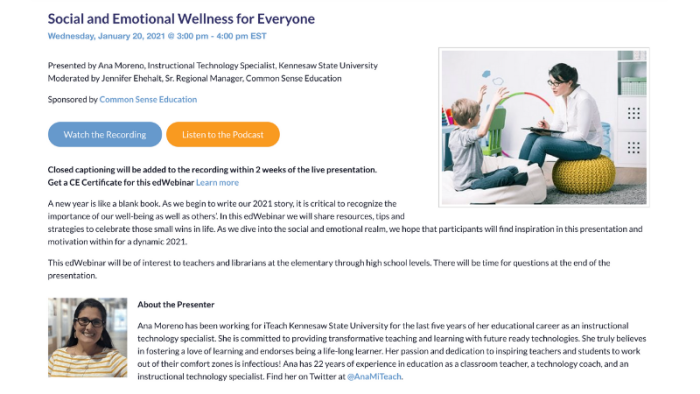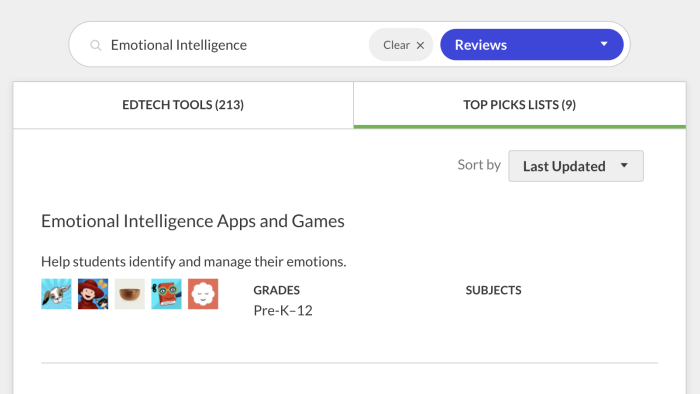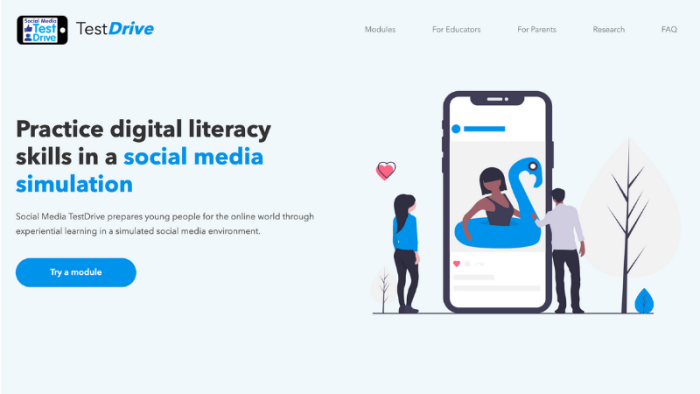Incorporate SEL into your teaching with these tips and professional development resources.

What does it mean to support students socially and emotionally in the online academic and social spaces where they exist? Our Digital Citizenship Curriculum has always been focused on the social and emotional lives of students within their digital spaces, but the connections to SEL competencies haven't always been clear. This is why we’ve created our Social and Emotional Learning in Digital Life Resource Center.
The competencies for social and emotional learning are essential to helping kids understand the digital citizenship skills they need in authentic ways. From communicating in online relationships to combating cyberbullying with social awareness, or being self-aware as they develop an online identity, social and emotional learning concepts are everywhere in digital citizenship. Not to mention, digital citizenship lessons can help students reflect on their media use, how it makes them feel, and its impacts on their emotional health.
Our simple, 15-minute SEL in Digital Life activities are CASEL-aligned and easy to integrate into your daily plans and lessons. The tips, advice, and professional development resources below are also here to help you consider other ways to incorporate SEL and digital citizenship. What's more, completing two of the workshops below can be your first step in completing our Common Sense Education Recognition Program.
Embed SEL Into Your Digital Citizenship Lessons
SEL and Digital Citizenship (30-minute webinar)
Pressing play on the YouTube video will set third-party cookies controlled by Google if you are logged in to Chrome. See Google's cookie information for details.
Common Sense team members Barbara Huth and Tali Horowitz present this session to highlight how you can use the Common Sense Digital Citizenship curriculum to teach Social Emotional Learning skills. While the session was presented during distance learning, most (if not all) of the tips they share are also very relevant for in-person instruction. They also model the use of a Digital Dilemma scenario, and share some tips on how teachers can find media balance in their own lives while supporting students to do the same.
Support Student Relationships
SEL: Supporting Students From a Distance (30-minute webinar)
Pressing play on the YouTube video will set third-party cookies controlled by Google if you are logged in to Chrome. See Google's cookie information for details.
Kat Crawford from the Center for Educational Excellence in Alternative Settings shares some of the practical ways she incorporates technology tools to support student relationships. Though she shares strategies in the context of distance learning, these same principles can be applied to any classroom to support student relationships. From screencasting and interactive tools to mindfulness and community-building activities, there's a lot here to learn.
Create a Positive Classroom Culture
Supporting Students Receiving Special Education Services (30-minute webinar)
Pressing play on the YouTube video will set third-party cookies controlled by Google if you are logged in to Chrome. See Google's cookie information for details.
Special education teachers are often masters at meeting the social and emotional needs of their students, and all educators can learn from their expertise in this area. In this webinar, Amanda Morin and Tory Wadlington offer tips on creating an environment that's soothing, both in physical classrooms and in virtual settings, and discuss the importance of building great relationships with parents and families.

Teachers' Essential Guide to Social and Emotional Learning in Digital Life
Find the answers to your SEL questions here!
Wellness Ideas for Teachers and Students
Social and Emotional Wellness for Everyone (60-minute webinar)

Presenter Ana Moreno offers a wealth of ideas for integrating emotional wellness into your everyday routines. From using edtech tools like Flip to help students share their perspectives, to using SEL question cards and putting classroom relationships at the center of your practice, there are helpful tips here for just about anyone.
Use Digital Tools that Support Emotional Intelligence
Emotional Intelligence Apps and Games (Top picks list)

Looking to provide your students with more responsive instruction? This list has dozens of age-appropriate apps and games that can help your students self-assess and communicate how they're feeling. For example, a tool like Breathe, Think, Do with Sesame is designed for the youngest learners to them learn how to handle frustrating situations. The Mood Meter can help students self-reflect as they track their emotions. Smiling Mind offers a free, quick introduction to meditation practice that can be introduced into most any classroom. Explore the list to find the best tools for your classroom.
Prepare Your Students for Social Media
Social Media Test Drive (interactive simulation)

In this simulation, students have opportunities to test out what they would do and how they might feel when faced with a variety of tricky digital dilemmas. The creators at Cornell University’s Social Media Lab aligned the game modules to the skills in Common Sense's digital citizenship lessons, and placed them in the context of realistic social media platforms. Modules include, Healthy Social Media Habits, The Ups and Downs of Social Media, and How to be an Upstander. An educator’s guide is included to help teachers get started.
Image courtesy of Allison Shelley/The Verbatim Agency for American Education: Images of Teachers and Students in Action.







